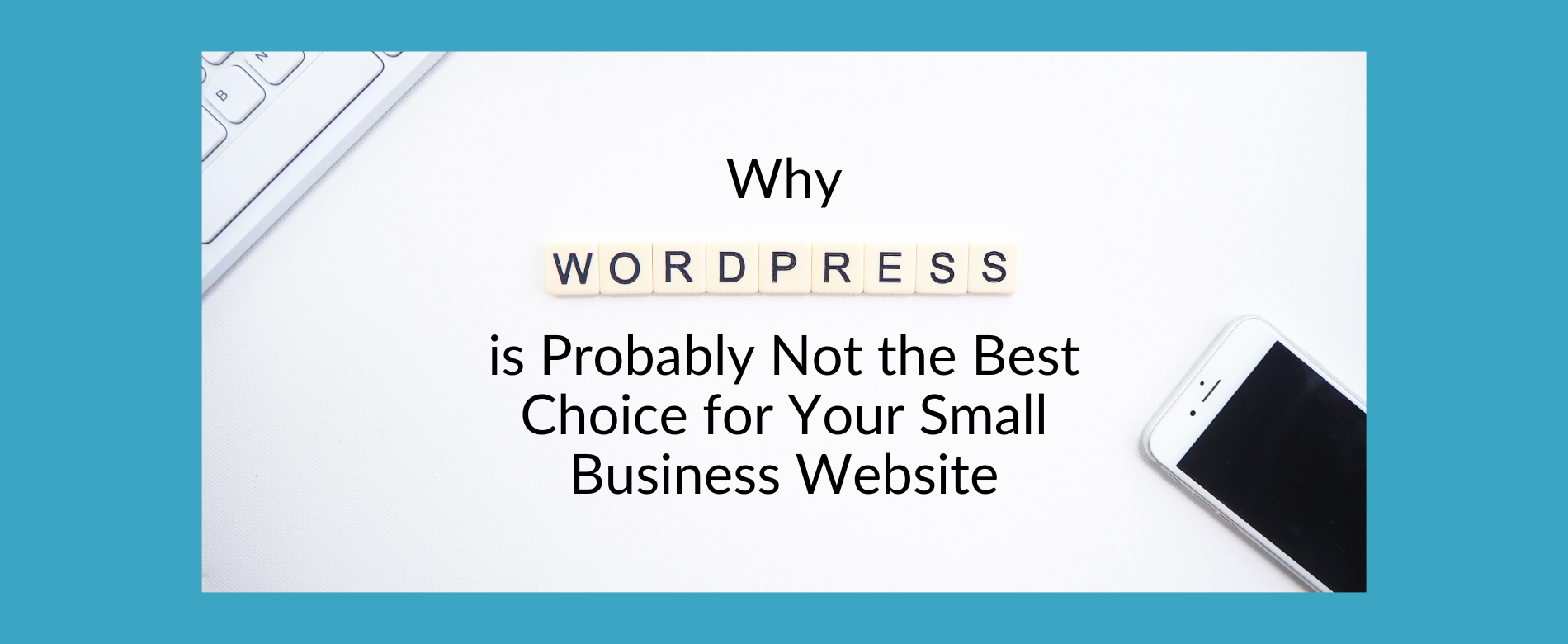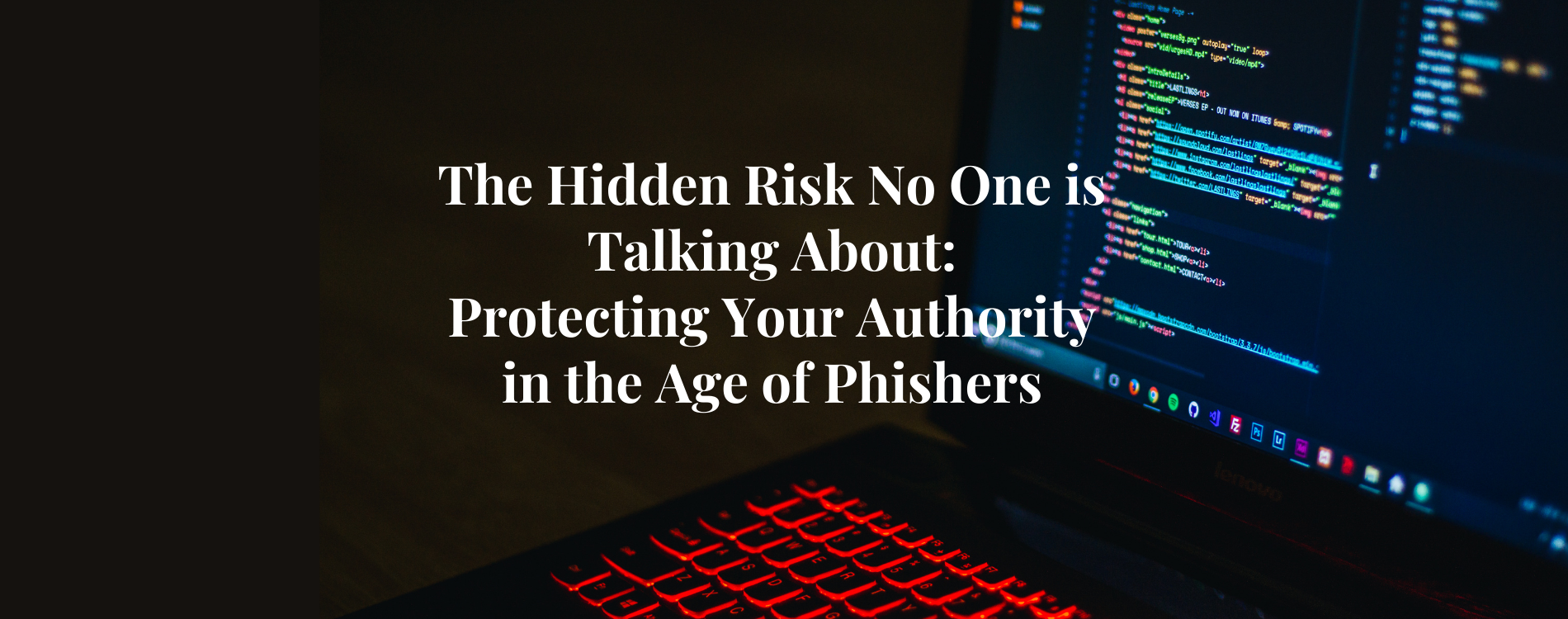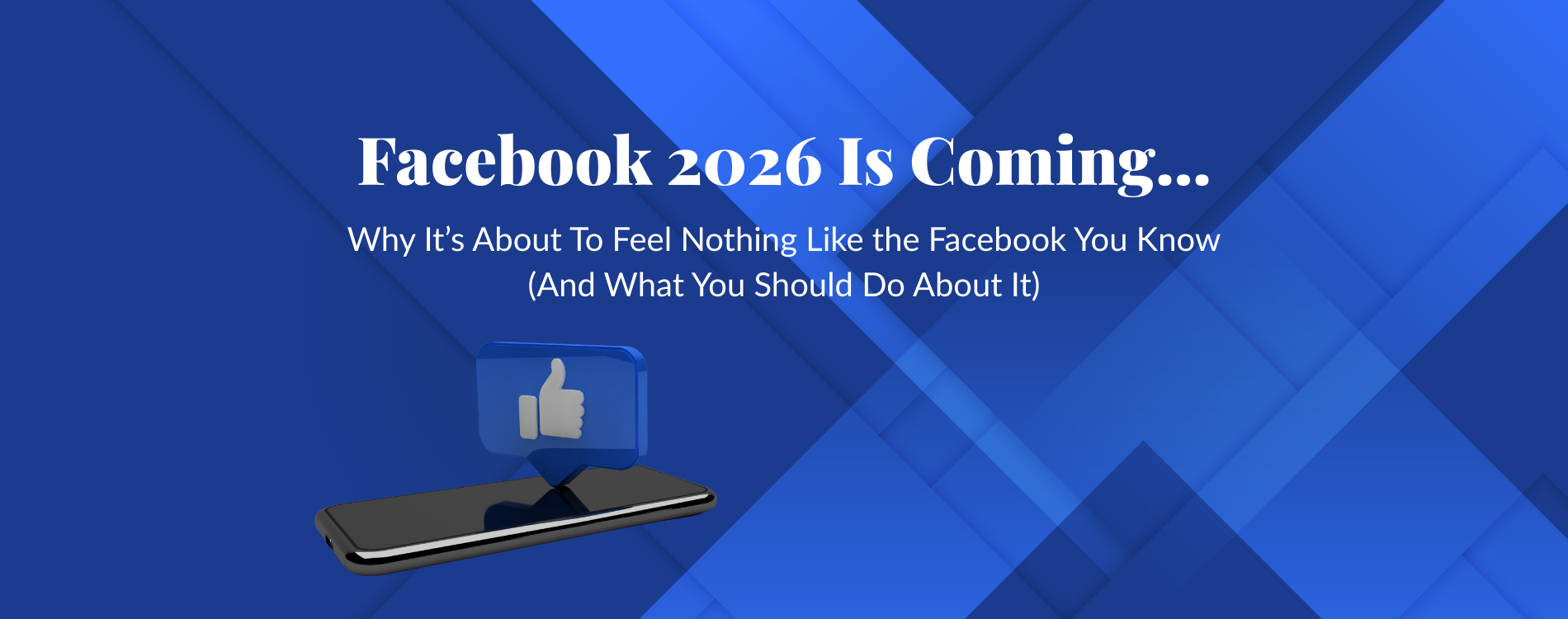Why WordPress is Probably Not the Best Choice for Your Small Business Website
Why do I say this and what do I recommend instead? Read on...

In today's digital age, establishing a strong online presence is paramount for small businesses to succeed. However, selecting the right website platform can be a critical decision that shapes your online identity. While WordPress has long been a popular choice, it may not always be the optimal fit for small businesses. Let's delve deeper into why, and explore alternative platforms like Duda (the platform I primarily use and recommend), Wix, and Squarespace that could better suit your needs.
- Ease of Use: Small business owners typically juggle multiple responsibilities and may not have the time, resources, or desire to master a complex website platform. WordPress's learning curve can be steep for beginners, requiring understanding of how WordPress works, how to build the website within a specific WordPress theme, and familiarity with concepts such as hosting, domain management, plugin configuration, plugin functionality, and how it all works together. In contrast, platforms like Duda, Wix, Squarespace, and Shopify (for e-commerce sites) offer user-friendly interfaces and drag-and-drop editors that empower even the most novice users to create professional-looking websites with ease. By streamlining the website-building process, these platforms enable small businesses to focus on delivering value through their websites rather than grappling with technical complexities.
- Complexity and Maintenance: WordPress offers unparalleled flexibility and customization options, making it a favorite among developers and large enterprises. However, this complexity can be overwhelming for small business owners who lack technical expertise and do not want to pay someone to fully support their website. Below are some of the areas where WordPress is unique and potentially challenging for the average small business:
- Hosting: Every piece of software has to be housed on a server somewhere to function. Websites are no different. What IS different about WordPress is that it requires hosting outside of the actual platform. And though this hosting is critical for the reliability, security, support, and performance of the website, it is often the least considered factor when building a WordPress website. There are a multitude of companies that offer WordPress website hosting, ranging in starting prices from $4 per month to over $100 per month, the cost typically driving the overall performance and speed. All too often, business owners look at cost first and end up with shared hosting where multiple websites compete for resources on the same server. While shared hosting is affordable, it can often lead to slower performance and limited scalability, especially during peak traffic periods when resources are stretched thin. Popular shared hosting providers for WordPress include Bluehost, HostGator, and SiteGround. It is important to note, as I said in the beginning, that all websites requires some sort of hosting. The difference for non-WordPress sites is that the website and hosting are on the same platform; therefore, Duda sites are hosted by Duda, Wix sites are hosted by Wix, Squarespace by Squarespace, etc.
From my experience: One of the biggest issues we saw when managing WordPress sites built by other developers was lack of speed. The ideal speed for a website to load for optimal visibility is 2 seconds or less. I did not have a single website load in under 3-5 seconds, with a few taking more than 10 seconds!
- Plugins: WordPress operates using a base platform with the design typically coming from WordPress themes and the vast majority of capabilities and features coming from plugins. For every piece of functionality you want to add, there are typically multiple plugins to choose from, all from different software vendors. With this diverse selection of providers, websites can occasionally have conflicts between the plugins, affecting reliability and usability, issues that are difficult to troubleshoot. Additionally, many plugins have a one-time or annual cost, costs that can add up. And, finally, is another speed concern. Quite often WordPress websites can get bogged down with plugins that drain resources or have too many plugins, causing the website to load more slowly. Selection, payment, and management of these plugins can definitely be overwhelming, especially for a business owner or team that does not have WordPress experience. In contrast, platforms like Duda, Wix, Squarespace, and Shopify function completely on their own platform. Though there may be a few add-on options, you are not responsible for the integration, maintenance, or any of the updates with these platforms, allowing you to focus on growing your business rather than managing technical details.
- Updates: Managing a WordPress website entails regular updates to the core software, themes, and the plugins due to new versions being released to fix bugs or security holes, improve functionality, and/or add features. Failure to stay on top of these updates leaves your site vulnerable to security breaches and compatibility issues, potentially rendering your site worthless. At times, these updates can also be highly complex in nature, often requiring a highly technical WordPress expert to make sure functionality stays intact once the update is done. With platforms like Duda, Wix, Squarespace, and Shopify, no updates are required. They work as a single system with software updates done behind the scenes.
From my experience: I have talked with many business owners with WordPress websites that do not regularly update their plugins nor pay someone to do it for them. I have also taken over management of several websites that no longer functioned because they were hacked (due to a critical update being missed that left an open door) as well as websites that simply stopped working because the plugins, theme, or WordPress itself were too far out-of-date. If you already have a WordPress website, I strongly recommend you make sure all of the updates are done regularly and correctly, ideally by a WordPress professional!
- Security Concerns: WordPress's popularity also makes it a prime target for hackers. The vast ecosystem of plugins and themes introduces potential security vulnerabilities that can compromise your website's integrity. While WordPress offers security plugins and best practices, ensuring comprehensive protection requires constant vigilance and proactive measures. In contrast, platforms like Duda, Wix, and Squarespace prioritize security by implementing robust infrastructure and regular updates. By choosing a platform with built-in security features, you can mitigate risks and safeguard your business from cyber threats.
- SEO Performance: Search engine optimization (SEO) plays a crucial role in driving organic traffic to your website and increasing your online visibility. While WordPress offers numerous SEO plugins and customization options, optimizing your site for search engines requires ongoing effort and expertise. Moreover, the performance of WordPress websites in terms of SEO can vary depending on factors like hosting quality, plugin compatibility, and code optimization. In contrast, platforms like Duda, Wix, and Squarespace prioritize SEO by providing built-in tools and features that streamline the optimization process. From customizable meta tags and structured data to mobile-friendly designs and fast page load times, these platforms offer the essential elements for achieving higher search engine rankings and attracting more organic traffic.
Final Word
In conclusion, while WordPress remains a powerful and versatile platform, it may not be the most suitable choice for small businesses seeking simplicity, security, and ease of use. Platforms like Duda, Wix, and Squarespace offer compelling alternatives that cater to the unique needs of small business owners. By prioritizing factors like user-friendliness, maintenance requirements, and SEO capabilities, you can make an informed decision that aligns with your business goals and resources.
If you currently have a WordPress website that you would like moved to the Duda platform or you need a new website, let's chat! Click here to set up a free Discovery Call.





